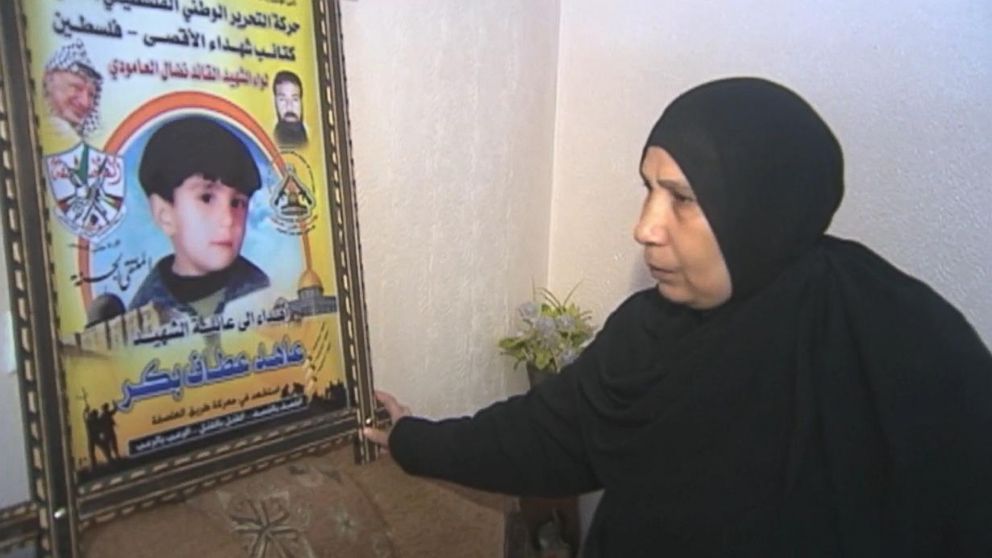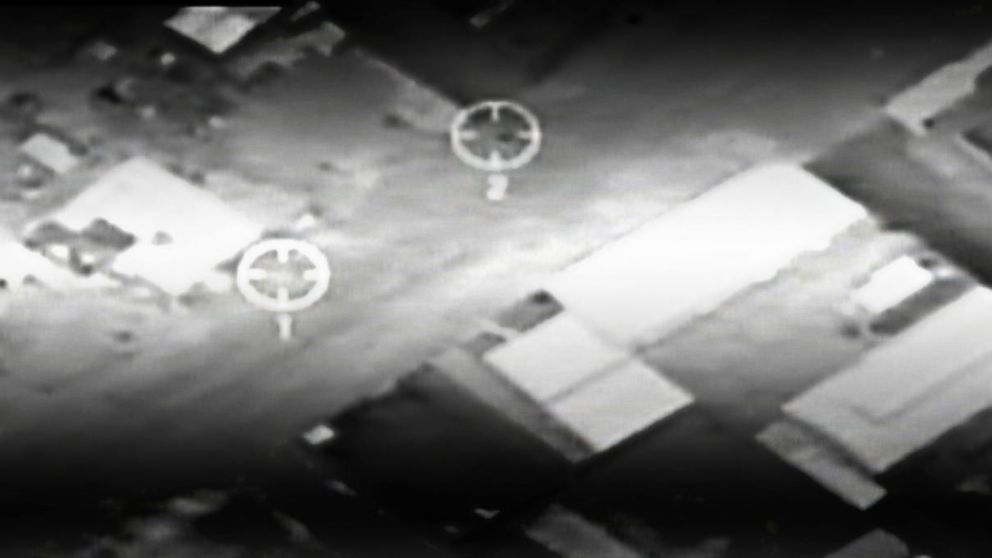A Year of Sleepless Nights for Boy Who Survived Deadly Israeli Attack at Gaza Beach
Israel had described the children's deaths as a “tragic accident."
GAZA CITY, Gaza— -- Um Atawf will never go to the beach again.
"I will never, ever want to even see the sea again,” she says through tears, just a few blocks from crashing waves of the Mediterranean.
She hasn’t set foot on the beach since July 16, 2014.
Mohammad Ramiz Bakr, 11, Ahed Atef Bark and Zakariya Ahed Bakr, both 10, and Ismail Mahmoud Bakr, 9, all died that day as the international press, including an ABC News correspondent, watched in horror. Within seconds, two Israeli airstrikes hit the children while they played on the beach; Um Atawf lost a son, grandson and two nephews.

A recent Israeli military investigation called the incident a “tragic accident,” claiming the target of the attack was a Hamas “compound,” and mistook the young boys for militants. But a new United Nations report, released last Monday and to be presented today at the Human Rights Council, tells a different story.
While critical of both sides of the conflict, the U.N. finds that Israelis blatantly failed to take all measures to avoid harming civilians that day.
"Firstly, the boys were aged between 9 and 11 years, and were therefore small in stature in comparison to the size of an average adult,” the U.N. writes, pushing back against the Israel Defense Forces’ conclusion that real-time visual surveillance was unable to identify the figures as children.

The IDF summary concluded that “it would not have been possible for the operational entities involved to have identified these figures, via aerial surveillance, as children."
As for this week’s U.N. report, the Israel Ministry of Foreign Affairs said in a statement, “It is regrettable that the report fails to recognize the profound difference between Israel’s moral behavior during Operation Protective Edge and the terror organizations it confronted. This report was commissioned by a notoriously biased institution, given an obviously biased mandate.”
Eight boys from the Bakr family were on the beach that day, and four suffered serious injuries but survived, including Um Atawf’s 12-year–old son, Moatasir Bakr.
"We were playing soccer,” Moatasir told ABC News at his house in Gaza City, speaking in stunted, haunted sentences.
The kids were playing on the breakwater near a metal storage container with no electricity, no running water, and no military equipment that ABC News was able to see at the time.
“We went to get the football [inside the container],” Moatasir recalled. “[My cousin] got hit by a missile immediately. We started running.”
The first boy was killed by the first strike, the other three were hit as they sprinted across the beach.
"When one of the identified figures entered into the remains of the container which had been attacked on the day prior to the incident, one missile was fired from the air towards the container and the adjoining shed,” Israel Defense Forces (IDF) spokesman Peter Lerner wrote on Facebook. "As a result of this attack, it appeared that one of the figures identified was hit. Following this attack, the rest of the figures began to run in the direction of the compound's exit.”
Moatasir says that’s when he screamed, “We will all die at once.”
The IDF's Lerner wrote, "Shortly before their exit from the compound, an additional missile was fired from the air towards them, which hit the figures in question after they had exited the compound.”
Moatasir said, "From the sea, they shot another missile at us. We start screaming and we start saying, ‘Oh, my God, oh my God…’”
When he stopped running, his younger brother and two cousins lay on the sand, motionless. Returning to the same beach a year later, Moatasir freezes, unable to speak.
Diagnosed with post-traumatic stress disorder, Moatasir barely sleeps now and violent nightmares plague his nights. He doesn’t go to school and his parents can’t remember the last time he picked up a soccer ball. The PTSD medicine costs around $100 per prescription, an unmanageable fee for the impoverished family of fishermen.
And Moatasir is far from alone; there are about 308,339 kids in Gaza still in need of psychosocial support, according to UNICEF. Palestinian children older than 6 living in the Gaza Strip have now witnessed three conflicts with Israel in their short lives.
Moatasir has tried to throw himself off the family’s second floor balcony, grows angry easily, his mother says, and lashes out at his siblings.
After a year, he’s not getting any better, she adds.
"I have nobody to play with now.” Moatasir said, not looking particularly interested in playing. “Nobody.”




